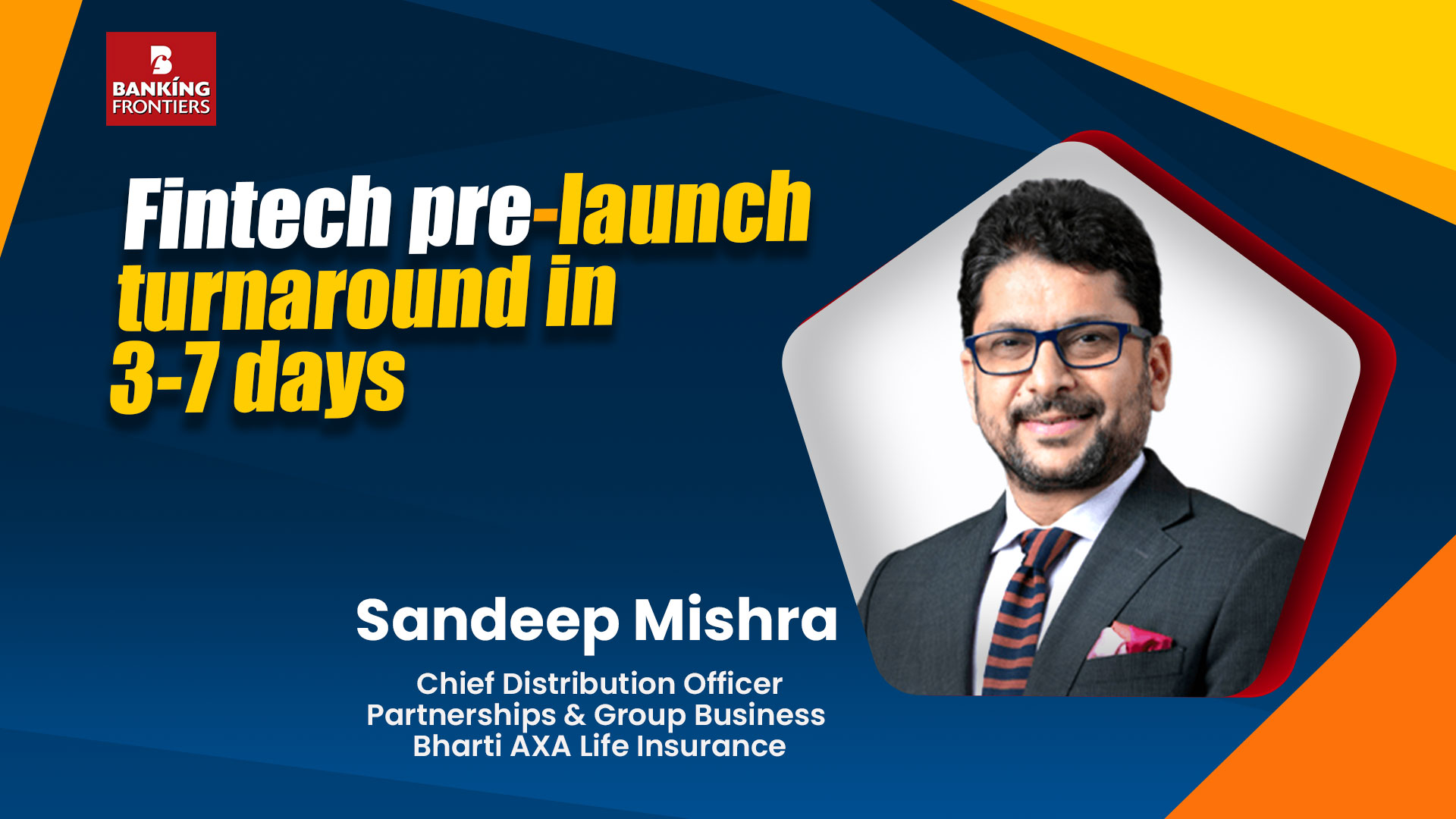Sandeep Mishra, Chief Distribution Officer, Partnerships & Group Business Bharti AXA Life Insurance explains the process and controls for partnering with fintechs:

Ravi Lalwani: Name 3-4 young fintechs that the organization has partnered with in the last 6-12 months.
Sandeep Mishra: Fintech businesses have understood how the agility and potential of cloud computing can help them stay ahead of the curve in the industry. Association with a domain specialist can further assist businesses and fintech organizations in optimizing their solutions and gaining competitiveness over peers through tailored innovation. It also enables them to increase credibility and influence by creating and supplying innovative products and services. In recent times, our partnership with Ola Financial Services is a partnership within the fintech space and we have also onboarded other digital partners Asego and PayBima.
Which departments are involved in onboarding a fintech as a key partner? What functions do those departments perform?
Several teams including business development, underwriting, distribution operation, operations, finance, and it/digital help us with the pre-launch stage for onboarding a fintech. The onboarding process is designed by business development in coordination with other departments for the pre-launch stage. Within a turnaround time of 3–7 days, all departments decide if any modification is needed to the organization’s standard process.
Distribution Ops assist in creating the partner/seller codes, the business development team onboards the partner and creates the experience, while the underwriting team secures a favorable NML/financial limits from the re-insurer and operations manager to oversee the after-onboarding processes and strive for quick issuance whenever possible. The IT/digital team support connecting the partner with our tech journey through APIs. In the partner ecosystem, marketing assists us in creating a story-based selling model, and direct-to-consumer – as the customer is the ultimate stakeholder in the process.
Describe a few ways in which these functions have been fast-tracked.
All our departments strictly adhere to our SoPs for onboarding fintech companies and resolving any outstanding issues. Stakeholders from each department attend bi-weekly catch-ups tech between the in-house team and our fintech partners. Here, we ensure that the deviations are flagged off and a detailed project charter is handled and recorded. In this manner, all requests are resolved during the call itself, preventing a delay in going live.
How is the organization monitoring these fintechs collectively considering changing technologies, changing regulations, changing business practices, etc?
The business development team along with the D2C team are typically responsible for keeping a track of such changes within an organization. The business development team communicates with fintechs, engages with them through conferences and events, builds and strengthens relationships with tech incubators, and keeps themselves updated in case of any modification in the internal modus-operadi to keep us relevant for fintech collaborations.
What has happened with the fintechs that were close to being onboarded but did not get onboarded? Have discussions with them come to an end? Are they asked to rectify the issues and try again?
We maintain a set of requirements for onboarding fintechs and carry a target list that allows us to evaluate and choose models that seem appropriate for driving insurance sales. Most of the partners with whom we had signed contracts have already been onboarded or are in the process of onboarding. If the fintech shop needs a few alterations to become more insurance-friendly, we assist them in doing so, within the legal parameters.
Where do the most bottlenecks come up in engaging a fintech – technology-related, domain-related, people-related, or something else?
Insurance is a business of mitigating calculated risks. Most insurance sales within the fintech environment are solicited by customers, with limited control. Fintechs who offer ease of customer onboarding sometimes undermine this risk associated with the insurance company and which may lead to a potential delay or roadblock.
Has the organization invested in any of the young fintechs? If yes, please share some details.
We have not yet invested in any fintech, however, we continue to look at viable opportunities for such investments in high-growth businesses.
___________________________________________________________________________________________
Read more:







